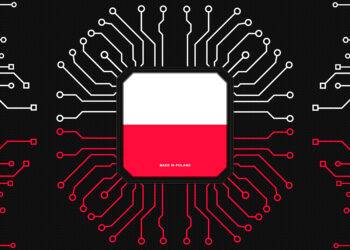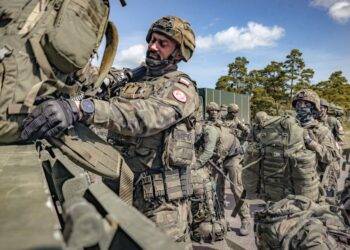A new study reveals that Russians top the list of nationalities most distrusted by Poles, with Americans ranking as the most trusted. The “2024 Polish Trust Index” sheds light on how various nationalities and minority groups are perceived in Poland, particularly in the wake of geopolitical tensions.
According to the report, Poles exhibit the highest level of distrust toward Russians, with 57.2 out of 100 possible points reflecting negative sentiment. This attitude is largely attributed to the ongoing conflict between Russia and Ukraine and years of strained relations between Poland and Russia. Following Russians, Muslims (44.7) and Belarusians (44.2) also ranked high on the distrust scale.
On the other end of the spectrum, Americans enjoy the most trust from Poles, scoring only 18 points in terms of distrust, followed closely by citizens of neighboring countries like the Czech Republic (18.4) and Slovakia (18.6). These findings suggest that while East-West divisions continue to shape Polish attitudes, Western allies, particularly the U.S., are seen as friendly and reliable.
Ukrainians Rank High on Distrust Scale
One of the more surprising outcomes of the study is the relatively high distrust of Ukrainians, who ranked fourth on the index. Despite the influx of Ukrainian refugees into Poland since Russia’s invasion, Poles maintain a level of suspicion toward their eastern neighbors. This sentiment may be rooted in historical tensions as well as the socioeconomic strain caused by the recent migration surge.
Countries like Japan and the U.S. garnered special favor, likely due to their image as economically advanced and technologically innovative. These perceptions contribute to Poland’s positive outlook toward these nations, contrasting sharply with the deep-seated mistrust toward eastern nations, particularly Russia and Belarus.
Geopolitical and Social Factors at Play
The study, conducted by SW Research in September 2024, highlights the role of geopolitical events in shaping public opinion. The aggression by Russia in Ukraine, conflicts in the Middle East, and concerns over terrorism have all contributed to heightened anxiety in Polish society. Events like the COVID-19 pandemic and high-profile global attacks have further intensified feelings of distrust toward specific groups.
Piotr Zimolzak, vice president of SW Research, pointed to the rise of “black swan” events—unpredictable crises that influence public perception. “These unforeseen occurrences, like Russia’s aggression or pandemic outbreaks, have a lasting impact on societal trust and identity,” said Zimolzak.
The survey sampled 1,500 adult Poles using the CAWI method, focusing on their attitudes toward 15 different nationalities and minority groups. Each respondent rated 10 groups at random, ensuring a balanced view of public sentiment across the country.
The study offers a glimpse into Poland’s evolving identity in an era of globalization, with western alliances playing a central role in shaping public trust. While Eastern countries face high levels of skepticism, Poland’s trust in the West, particularly the U.S., remains strong.
Background on Trust Issues
Poland’s complicated history with its neighbors has long shaped national attitudes toward trust and foreign relations. The nation’s position as a post-communist country with close ties to both the European Union and NATO has influenced its alignment toward Western nations. Meanwhile, its proximity to Russia, and a shared border with Belarus, continues to fuel distrust.
The findings of the 2024 Trust Index reflect these historical and geopolitical tensions, offering key insights into Poland’s foreign relations moving forward.


















